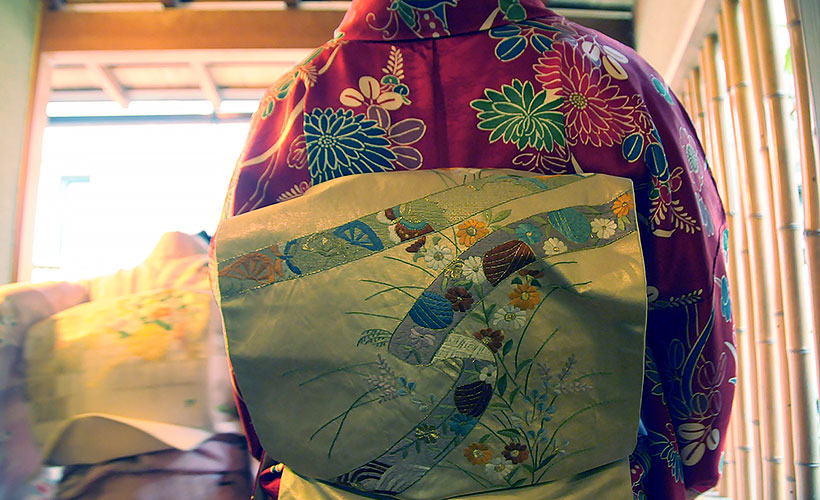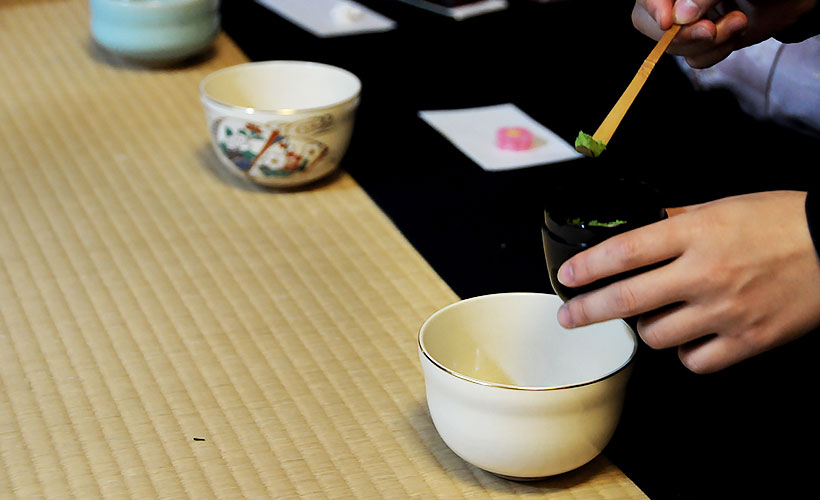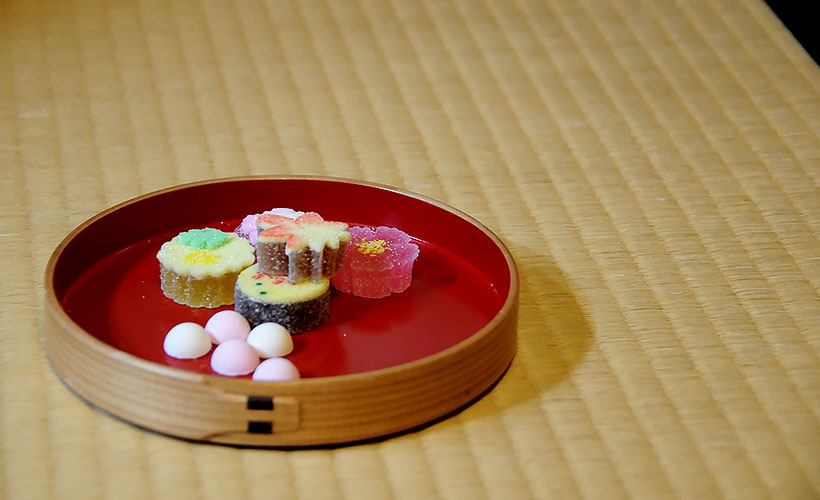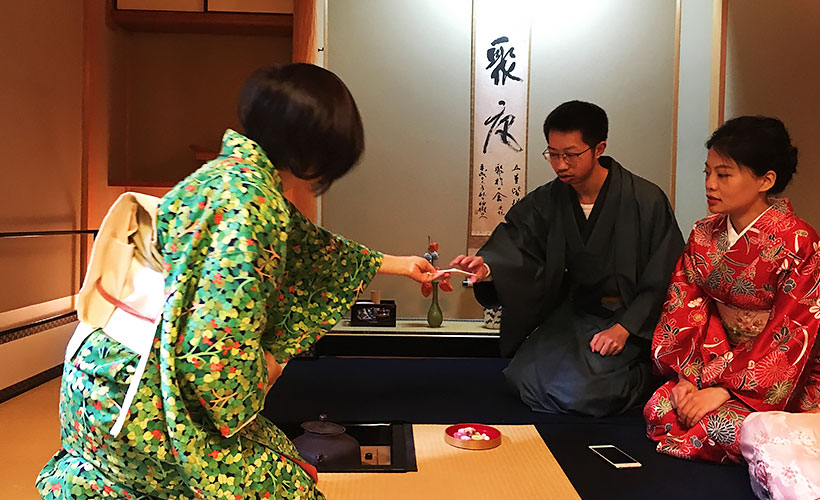
“Look at the intricately designed tea cup,” Masumi told us from the front of the tea room, “Take a moment to appreciate it.” There were of six of us sitting on the tatami, or floor mats made of rice straw, around her, our legs cramping while Masumi positioned herself gracefully in her kimono, an outfit I imagined didn’t give one much wiggle room.
Masumi’s gentle instructions, her thoughtful gaze and radiating happiness made me think of the feeling that I kept having throughout the few days I had been in her country.

I could be on the complicated Tokyo subway, or in the middle of Shibuya, or even in a public toilet in a train station, and still, despite the 127 million people living in 145,932 mi², every aspect of this country seemed pleasant. I glanced around the room as Masumi started to distribute small sweets to eat before consuming the matcha. The matcha is bitter, and the sugar in your mouth softens the taste that follows. While the sugar dissolved in my mouth, each thing I saw was more pleasant than the last. It wasn’t just Masumi’s soft-spoken voice that was soothing. The tapestries, calligraphy, flowers and ornate boxes, even the shoji, a sliding panel wood-framed paper, evoked a sense of calm.

If there is beauty, there is a need to appreciate it. “Appreciate the curve of the ladle,” Masumi said so softly I had to lean in towards her. I use a lot of kitchen utensils, I thought, but I’ve never stopped to appreciate them. What’s there to appreciate? They are what they are.
The deliberate process of officiating a tea ceremony forced us to remember that beauty deserves to be recognised. The Japanese may be famed for their minimalism, but this doesn’t mean they are minimalist everything. The sense of appreciation I encountered, in both the tea ceremony and around the country, was overwhelming. If Masumi can appreciate the aesthetic of a ladle, imagine how she could appreciate her family, or a gift, or even the sunrise and sunset of every day? I wondered if I was showing enough gratitude for the important things in my life – even the things I use on a daily basis and take for granted. And like Masumi communicated to us, there is always something beautiful to be appreciate.

In the ceremony, I encountered a serendipitous moment of a sense of connectedness with strangers. I had travelled far from home to attend this ceremony at Tea Ceremony Juan in Kyoto, Japan. As it turned out, one of the other guests was from China, but she and I had studied at the same university in the US.
“Oh, my!” Masumi smiled, “What an Ichigo Ichie moment!” 一期一会 Ichigo Ichie, as Masumi told us, was the essence of the tea ceremony. This Japanese idiom literally means ‘one opportunity, one encounter’ or ‘treasure every encounter, for it will never recur’. I took a moment to appreciate that coincidence. You can’t let one moment go by without appreciating it, because it will never occur again.
This was something that I found to be the most impactful takeaway of my time in Japan. No matter the situation, if it’s a busy intersection or an argument with a stranger, you can approach the situation with the same grace as you would in a tea ceremony. There is always something positive, even in the most stressful moments. Whatever is happening, it will never occur again.

The Japanese tea ceremony originated from the upper classes but its message is one that all humans, no matter their nationality or social status, can understand. It’s no secret our world moves fast, and most of us live our lives in a blur. But I vow to do as Masumi taught us in the tea ceremony: Slow down, stop and appreciate before proceeding. Don’t be fooled by the title; tea is only one part of the ceremony. The rest depends on your heart.
Read our last Travel Tale:
4 Of The World’s Most Mesmerising Scuba Diving Spots Are In Malta
Here’s your chance to get published on Zafigo! We want your most interesting Travel Tales, from memorable adventures to heartwarming encounters, scrumptious local food to surreal experiences, and everything in between. They can be in any form and length –short stories, top tips, diary entries, even poems and videos. Zafigo is read by women travellers the world over, so your stories will be shared to all corners of the globe.
Email your stories to [email protected] with the subject line ‘Travel Tales’. Include your profile photo and contact details. Published stories will receive a token sum.

